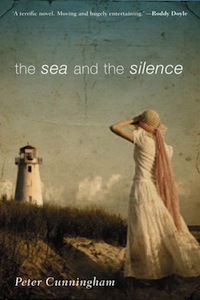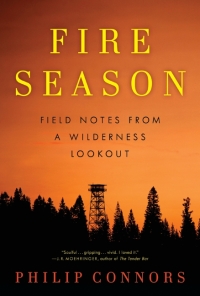The Sea and the Silence by Peter Cunningham
 Friday, April 22, 2011 at 2:44PM
Friday, April 22, 2011 at 2:44PM 
First published in 2008; republished by GemmaMedia on February 1, 2010
The Sea and the Silence tells a bleak story of lost hope, a story that is tragic but rich with emotion. The story is set in Ireland. Much of it takes place during World War II when (according to one of the characters) an independent Ireland was young "and time is all that is needed for it to come of age." By confronting her grief (over deaths and lost love), Ismay ("Iz") too comes of age; she must decide whether to base choices about her future on practicality or love -- only to find that some choices are out of her hands.
The Sea and the Silence begins quietly and ends dramatically. The novel is oddly structured -- at least it seems odd until the end, when it all makes sense. In a prologue, a solicitor is reading Iz's will; an epilog returns to the will and its impact on one of the characters. The bulk of the story is told in two parts, each written by Iz and delivered to the solicitor after her death. The first describes Iz's life from 1945 to 1963; the second begins in 1943 and ends in 1945. The first section is dominated by Iz's troubled marriage to Ronnie, their financial and marital problems, and her relationship with her son Hector. The second section addresses her family's financial woes, her uncertainty about whether their farmland will be taken and redistributed by the Land Commission, her strained relationship with her sister, the love she feels (to her sister's horror) for a dock worker, and the difficult choices she makes about her life (and those that are made for her) that lead her to marry Ronnie.
The novel explores a number of themes, including long-standing class prejudices and resentment of Irish landowners. Iz comes to wonder whether "the wedge driven by centuries between ... different classes could be removed by something as insubstantial as love." The story doesn't follow the classic pattern of American fiction: poor girl falls in love with rich boy, love triumphs over differences in financial status. The Sea and the Silence is more complex than that, a deeper exploration of the forces (including class, including love) that shape lives.
There are some wonderfully written, deeply moving scenes in The Sea and the Silence. The characters are created in full, carefully detailed and completely believable. The sea -- "resolute and unceasing" -- is a constant presence in the novel. Iz feels drawn to the sea yet learns to prefer the silence and anonymity of her small Dublin garden. I was lulled by Peter Cunningham's elegant prose, believing for most of the book that I was reading a quiet, uneventful story, until events in the final chapters turned it upside down and made me appreciate its structure. This novel is the work of a skilled craftsman.
RECOMMENDED



